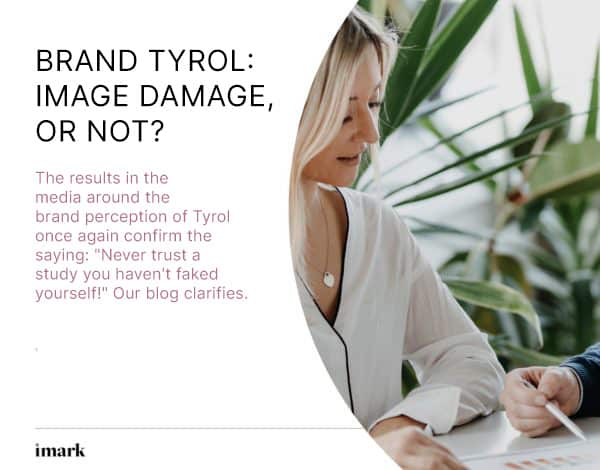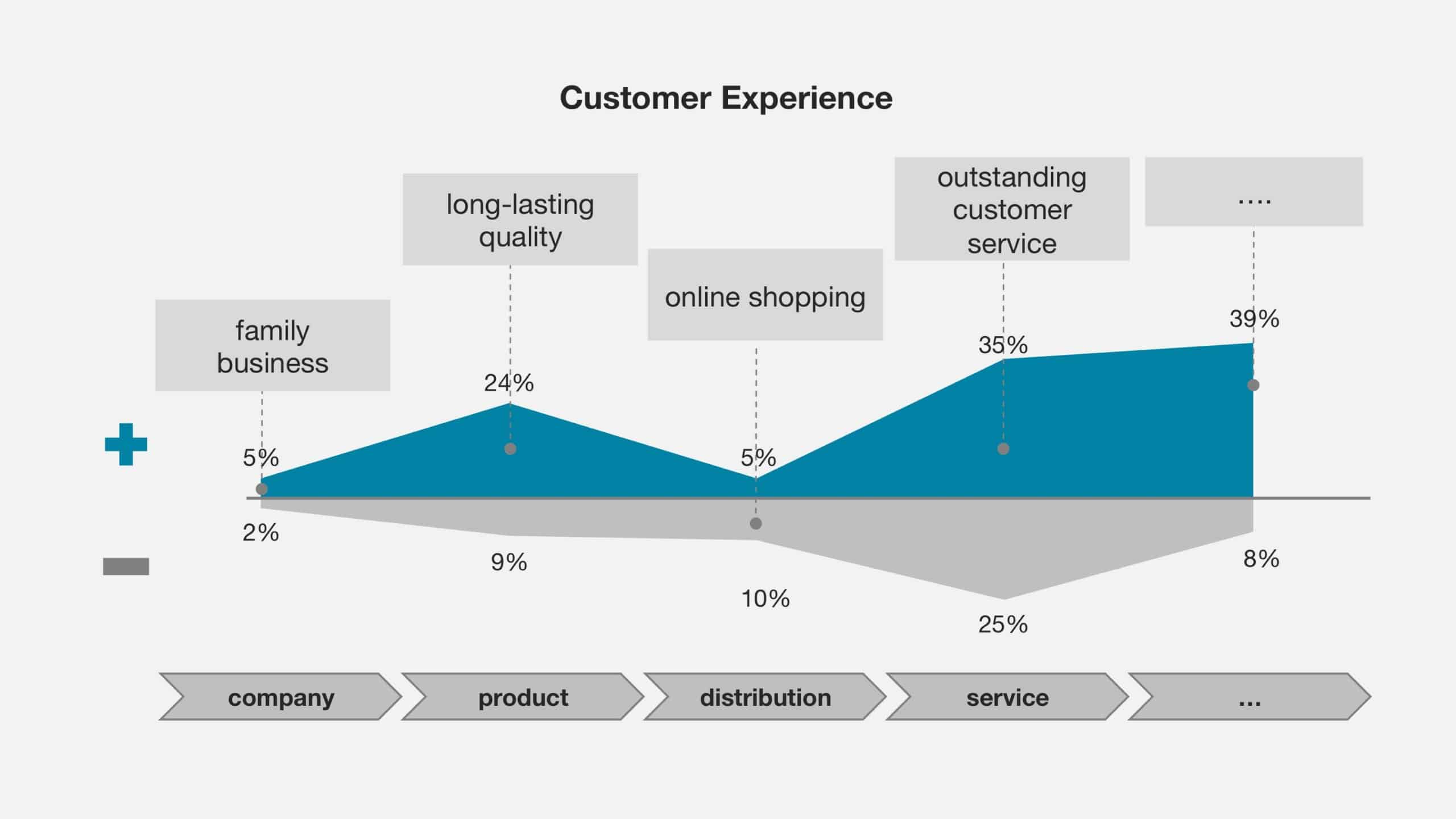Brand Tirol: Is there image damage?
The study results for the brand perception of the brand Tyrol clearly show how different methodological approaches can lead to different results.
The Management and Economic Institute (IMWF) identifies “enormous” image damage for the whole of Tyrol—keyword Ischgl or exit test mutations. IMARK, on the other hand, considers the reputation of the Tyrol brand in Germany to be intact.
How do these different results come about?
Different target groups
IMWF used a web crawler to analyze a large number of current Internet and social media debates for specific content on Covid, Tyrol, and their emotional significance (positive or negative).
This primarily captured people actively discussing on social media and Internet platforms and collected their sentiment. According to the Süddeutsche Zeitung, this is around one-fifth of the German population. Four percent are considered “heavy users” who participate particularly intensively in online debates. The following characteristics are also attributed to the participants: strong political interest, lower level of education, and high economic dissatisfaction. (Source: https://www.sueddeutsche.de/politik/wie-online-diskutieren-richtig-sicher-1.4526524)
In the IMARK study, attention was paid to age distribution in line with the German population structure in three staggered survey waves. Another selection criterion was interest in vacations. Thus, a much broader group—namely “all German vacationers”—was surveyed here.
Different survey methods
The IMWF study analyzed the content of social discourse on the Internet and on social media on the basis of specific content such as Corona, Tyrol, and their positive or negative meaning. By pre-selecting the content searched for, the results are implicitly co-designed. For example, the keyword Covid is very unlikely to be associated with anything positive.
In the IMARK study, the spontaneous association method was chosen. The question was: what spontaneously comes to mind when you think of Tyrol? This type of questioning technique opens up the space for respondents to name all current thoughts and attempts to exert as little influence as possible on the answers and avoid prescribing an answer structure. In our opinion, this reflects the current perception of a brand in a much more neutral and valid manner than if certain profile characteristics or current topics are explicitly specified.
The results
The result of the two studies shows that the selection of respondents as well as the survey method can lead to diametrically different results and conclusions: from enormous image damage to the intact reputation of a brand.
Conclusion
With regard to brand (further) development, discourse in social media is an important starting point for current topics that potentially affect brand perception. However, it is short-sighted to draw a direct conclusion about the actual situation of the brand from this. For this purpose, the relevant system partners—such as customers, retailers, and partners—must be considered more comprehensively and open survey methods must be used, because a brand’s reputation is created via a multitude of experiences, experiences, and perceptions, and over a longer period of time. Undoubtedly, short-term events can affect reputation (positively or negatively), but the brand is rarely damaged immediately. Strong brands are characterized by building their reputation over the long term through consistent and positive service delivery.
If one wants to measure a brand’s reputation, the following should be observed in any case:
- Open-ended survey methods instead of prescribing characteristics and response options.
- Monitoring of perception through recurring, continuous recording—in this manner, changes can be detected and the influence of current events can be assessed
- Consideration of the actually relevant target groups
If you are interested in surveying the brand perception of a region or a company, please contact us for a non-binding discussion at info@imark.at.
You can find more information about the study of the brand Tyrol via the following links:
- https://imark.at/de/markenwahrnehmung-tirol/
- https://imark.at/de/auswirkungen-von-corona-auf-bedeutung-und-staerke-der-marke-tirol/
- https://imark.at/de/urlaub-in-westoesterreich/
- https://tirol.orf.at/stories/3094219/
- https://www.tt.com/artikel/30789781/imark-institut-ruf-der-marke-tirol-intakt-bei-deutschen





















